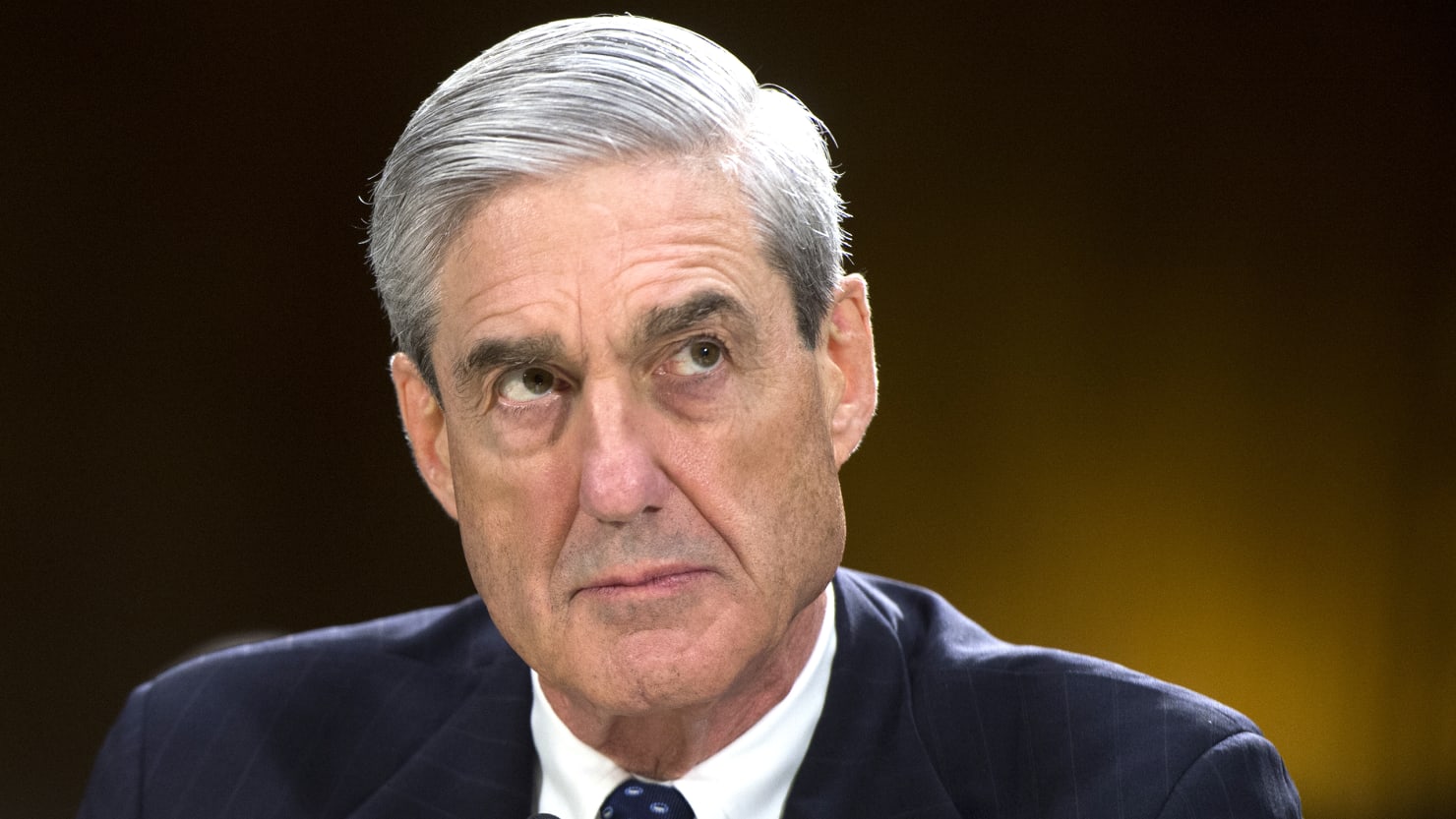The Strategy Mueller Is Using to Protect His Inves
Post# of 128826
Quote:
The Strategy Mueller Is Using to Protect His Investigation
By farming out cases, Rosenstein and Mueller may have built a structure that cannot be felled by one political axe.
Trump and Giuliani are so badly overmatched it's laughable.
Barbara McQuade
07.20.18 1:25 PM ET

Tom Williams/Getty
The indictment against alleged Russian agent Maria Butina appears to be part of a strategy often associated with investment advice – diversify your assets.
The announcement Tuesday that Butina had been indicted by the U.S. Attorney’s Office for the District of Columbia brings to three the number of different Department of Justice components working on cases relating to Russian interference in the 2016 presidential election.
First, of course, is the investigation led by Special Counsel Robert Mueller into links between Russian interference and the Trump campaign. Since his appointment in May 2017, Mueller has charged 35 individuals and entities, including Trump campaign members and Russian nationals and intelligence officers.
Then came the spinoff investigation of former Trump attorney Michael Cohen that is being led by the U.S. Attorney’s Office for the Southern District of New York. Search warrants have been executed at Cohen’s office, hotel room, and hotel, but no charges have yet been filed.
And now comes the news that the U.S. Attorney’s Office in the District of Columbia is handling the case against Butina, charged with acting as agent of a foreign government and conspiring with others to do so.
The indictment alleges that Butina acted under the direction and control of a Russian official for the purpose of infiltrating organizations active in American politics to advance the interests of the Russian Federation.
Certainly, all of these cases could conceivably come under Mueller’s umbrella as special counsel. His mandate in the appointment order from Deputy Attorney General Rod Rosenstein was quite broad — to investigate links between the government of Russia and the Trump campaign relating to the 2016 presidential election, “any matters that arose or may arise directly from the investigation,” and any other matters within the scope of the pertinent regulation, such as obstruction of justice and perjury.
An August 2017 memo from Rosenstein further spells out Mueller’s mission in more detail, but large parts have been redacted from public view. It could be that these other matters involving Cohen and Butina are outside the scope of the memo. Or it could be that Mueller and Rosenstein are following the sage investment advice to diversify one’s portfolio. In other words, don’t put all of your eggs in one basket.
By assigning these cases to various different DOJ offices, Rosenstein and Mueller may be protecting them from being destroyed. Think of the way the Internet was developed as a network of networks, so that it could not be taken down by one attack. Even if a portion of the Internet were compromised, the theory goes, the remaining networks would survive.
In the Russia investigation, concern exists that Trump could order Rosenstein to fire Mueller or that Trump could even try to fire Mueller himself, even though the regulations say that only the attorney general may do so. In addition, some scholars have argued that the appointment of Mueller as special counsel is constitutionally flawed, and could face legal challenges.
If that were to happen, the investigation could be in jeopardy. By assigning aspects of the investigation to other DOJ components, where career prosecutors are working on them, Rosenstein ensures that these cases will continue even if Mueller is fired or the special counsel’s appointment is found to be legally invalid.
To his own cases, Mueller has added staff from the Department’s National Security Division and the U.S. Attorney’s Offices in Eastern Virginia and Western Pennsylvania, rather than hiring more staff to the Office of the Special Counsel.
He is likely taking advantage of subject matter expertise, but this, too, may be an effort to provide continuity in case he is fired or his office is disbanded.
While some prosecutors may be tempted to protect their turf and hold close all aspects of an investigation, Mueller and Rosenstein have been quick to farm cases out to other prosecution offices. In doing so, they may have found the way to have the best of both worlds.
While other DOJ personnel work on these other cases, Mueller’s team can focus its efforts solely on cases directly related to Russian election interference and Trump campaign members.
But, because the cases are all being handled by one Department of Justice, any information that emerges from these investigations can be shared with Mueller.
All three of these investigations are supervised by Rosenstein, whose staff likely gets regular briefings and updates on each case. If useful information should emerge in the Cohen or Butina cases, agents and prosecutors can pass that information back to Mueller’s team for use in his cases.
If, for example, Cohen were to agree to cooperate with the government in exchange for a recommendation for a reduced sentence for any crimes with which he might be charged, the information he provides could be shared with Mueller’s team.
This information could be used for lead purposes, such as to inform the questioning of Trump if he were to sit for an interview or be subpoenaed to testify before a grand jury. Or Cohen’s information could be used to establish probable cause for a search warrant or other court process. Mueller could also call Cohen as a witness in any case that goes to trial.
By taking an approach to leadership that you sometimes gain power by giving it away, Rosenstein and Mueller may have built a structure that cannot be felled by one political axe.
 (0)
(0) (0)
(0)